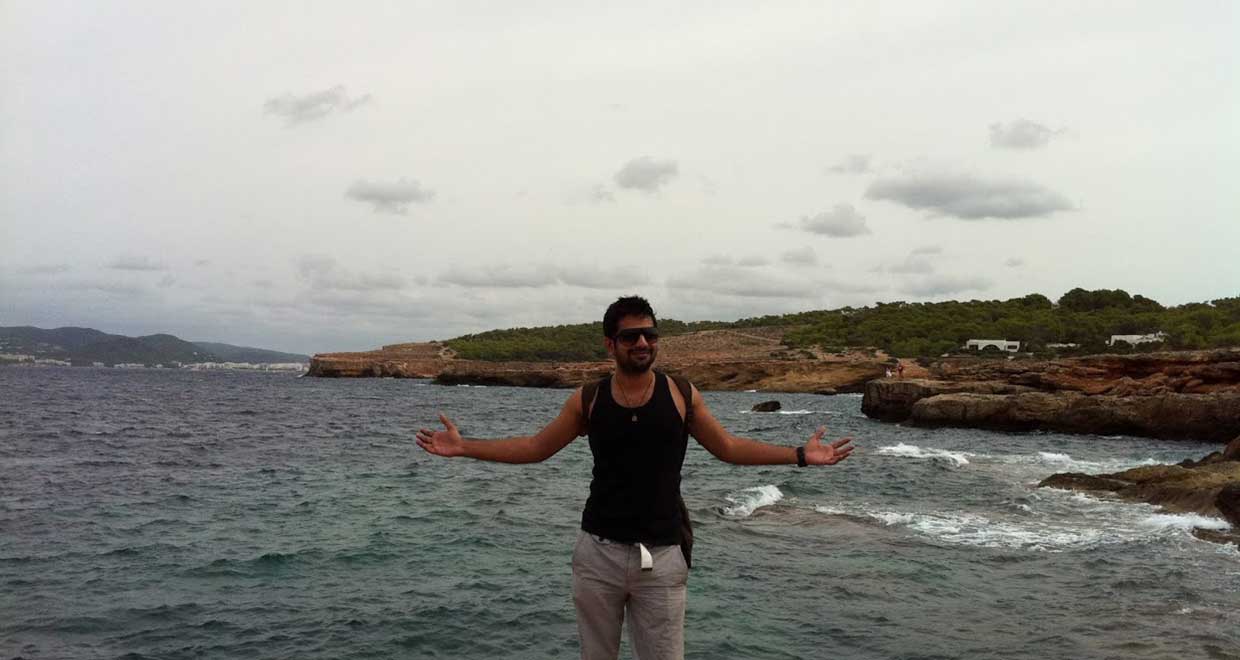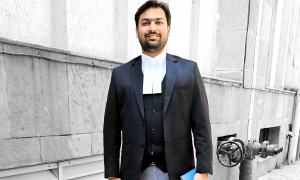Mihir Deshmukh graduated from Government Law College, Mumbai in 2005. He has over 11 years of experience in arguing matters relating to indirect taxes before various for a throughout the country. He is admitted as an Advocate with the Maharashtra and Goa Bar Council since 2005 and has an extensive experience in litigation in the areas of Central Excise, Service Tax, Cenvat Credit, Value Added Tax and Central Sales Tax including appearances before various High Courts and Indirect tax Tribunals. His clientele has been diverse and included Maharanta companies such as BPCL, ONGC, SAIL and MNCs such as Dish TV, Tata Group, Reliance India Ltd., Dow Chemicals, Bruker International and HCC Ltd. He also has an indirect tax advisory background and was associated with PWC and ELP during his earlier stints and was also a part of the indirect tax litigation team of EY (PDS Legal) since its inception in 2010. His areas of functional expertise include Customs, Service Tax, Central and State Sales Tax Laws, Excise, VAT, Works Contract Tax, Octroi.
In this interview he talks to us about:
- Importance of taxation as a subject for law students.
- How can one gain expertise in Indirect Tax.
- His strategy to deal with errors and mistakes.
- Qualities that helped him to achieve the current status.
How would you introduce yourself to our readers? Please tell us about your family and childhood.
I am third generation lawyer, my father is an industrial law consultant ,my mother was a teacher and then a home maker who gave up her career to ensure that she could devote her entire time to us. My wife is a Professor in an engineering college pursuing her Ph.D. simultaneously. The values embedded in me, which I hold close to my heart and which I believe have made me the person I am today are because of the sacrifices made by family. I did my schooling in a small town Roha, and then had to move to Mumbai for my further studies (Junior college and Law school).
What brought you into studying law? Was it fate or planned?
In a lighter vein, I would call it planned fate. Like other kids who want to be a policeman or pilot or a 100 other vocations when they are growing up, I was always clear that I wanted to be a lawyer. Maybe it was because of seeing my father in the profession and my love for reading that pushed me towards it.
How helpful was your law degree in terms of the added legal perspective to your existing knowledge? What career advantages did it bring?
Getting a law degree brings about a different thought process to you. It helps one become more analytical. Coupled with your knowledge I believe a law degree gives one that cutting edge over others.
How important is taxation as a subject for law students? What advice would you give our readers to consider taxation as an area of practice?
Today, the tax subject is optional in many universities. However, to a very great extent I feel that Tax as a law subject should find place in the syllabus of every law student. Tax as a subject cannot be taught in isolation. While studying tax, one also dives into the intricacies of constitutional law, administrative law, Law of jurisprudence and interpretation of statutes, forming a gamut of legal studies. Further, with GST now coming in, there is a great demand for indirect tax layers. I would urge all your readers to consider tax as a serious option.
What’s a typical day at work like? How can one gain expertise in Indirect Tax? What does it take to be a good Indirect Tax Lawyer?
Typical day at work starts with flipping through pages of the law journal- electronic or print and then to rush off your feet to the court which ends with a relaxed cup of tea. The evening is spent preparing for the next days’ court. Call me old fashioned, but I believe in starting early and finishing early. I hate late working hours unless absolutely necessary. I make it a point that my team finishes at a decent time by 7.00 pm. It keeps them in balancing their work life balance and I get a team with great productivity and output.
What are the preferred legal issues you like to work on? Do you have any hobbies that help you unwind after a long day at work?
As a budding lawyer you really cannot be choosy about work. Though, now I am primarily and indirect tax litigator, I worked on all laws during my internship days. I believe that internships lay the foundation for your future and therefore have my reservations against the 1-2 month internships that are a norm with the law students today. It is too short a time frame to learn anything. You should commit for a considerable period of time to learn and understand things. I was lucky enough to intern with Mr. Mohan Jayakar (Khaitan and Jayakar), the person who I credit for making me the professional I am today.
I have always been an avid reader which as a kid inculcated me with the ease of reading the lengthiest briefs. After work, if time permits, I engage myself in gleeful reading of non-fictions. Watching masala movies always helps.
What has been your strategy to deal with errors and mistakes? How would you advise a young associate to deal with them?
As an officer of court, I endeavors to assist the court in the most honest and immaculate manner. I try to be sure that the court is not misled and true facts and position of law is brought before them. However, one is bound to err. The best way to correct is to reinstate the correctness at the earliest. I advice my associate to confront flaws and start improvising it without any procrastination. The trick is not to get disheartened by failure. As long as one feels they have given their 100%, then failure should not affect you.
What steps do you take to prepare for a difficult case?
Be it a difficult or a simple case, one should be thorough in the preparation. The reason being you can never predict what a judge might question you on. The premise is to know the facts of the case inside out and then the legal provisions pertaining to your case and relevant case laws in your favour. One thing, I would like to add here is that one should also be aware of the case laws against you if any so that you can differentiate them when quoted by the other side.
What qualities do you think helped you achieve this status?
I would say that to achieve success in the legal profession, on needs not only work hard but one should also work smart. You need to be ready to work hard (not to be mistaken for long hours). Hard work makes up for every other drawback one might have. That is the only virtue I would ask everyone who wants to be a successful litigator to imbibe. This industry belongs to one who is industrious.
What would be your parting message for our readers?
Be a litigator because it’s your passion and not just a career option. Once it is your passion, the ingredients of making it a success need not be taught to you but you will come up with your own unique recipe and success story.
























